Monday afternoon proved to be the final nail in the coffin for the NHL’s involvement in the 2018 Winter Olympics.
2018 Winter Olympics: NHL won't participate in Pyeongchang Games https://t.co/0bmBD61tu2 pic.twitter.com/JGEsPCCFJI
— Fox News (@FoxNews) April 4, 2017
The NHL has competed in the last five Winter Olympic games and without a doubt, some of the best hockey games of the past few decades have been produced in the Olympics. Aside from the from the United States’ victory over the Soviets in 1980, moments like Zach Parise’s last-minute goal or Sidney Crosby’s goal in the gold medal game of the 2010 Olympics or even T.J. Oshie’s shootout magic against the Russians in 2014 have all been the result of putting the best players in the world on the same sheet of ice.
The NHL is not only missing out on a huge opportunity to grow the game, they’re stripping the players of something almost every one of them has dreamed about since they were a little kid. Losing out on that opportunity is certainly going to leave the players looking at their bosses the wrong way. In fact, several players have already taken to social media to voice their displeasures.
Where does that leave us?
Well for starters, the IOC, NHLPA and NHL are all going to lose out here, but in the long-term, the real losers will be the NHL.
A Diverse Atmosphere
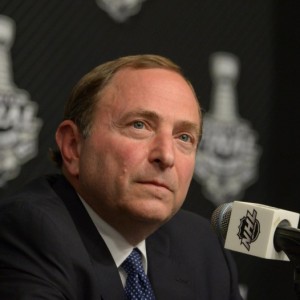
As a hockey fan, it’s sometimes easy to forget that a majority of the time, the NHL is on the outside looking in. I love the sport, and I’m sure many of you do too but make no mistake about it, it is the least popular of the four major sports in the United States. While that is true, hockey also has the most room to grow and it is in fact still growing. I even wrote about how Gary Bettman has done a fairly good job at allowing the game to grow, but this time he’s really dropped the ball.
Despite being the least popular of the four spots in the United States, hockey has vast diversity in its participants that the other three major sports cannot compete with. Football is largely limited to just American players, while basketball and baseball are a little more diverse. In the latter two sports, though, the best talent still often comes from America.
That isn’t true for hockey.
In fact, if you were to head over the NHL.com and take a look at the league’s top 10 point leaders, you’d find five different countries (US, Canada, Sweden, Russia, and Germany) represented. That is absolutely astounding and it’s a testament to just how far the game reaches and how it’s grown. The NHL should be taking full advantage of that, not putting it on the back-burner.
Would a team like Germany really stand any bit of a fighting chance without their NHL players such as Leon Draisaitl, Dennis Seidenberg and Thomas Greiss? Probably not. And of course, that just brings up another question. What’s going to stop guys like that from leaving the NHL and going to support their country? Draisaitl is among the league leaders in points and Connor McDavid’s linemate, a steady absence of him in late February could kill their playoff chances.
Ovechkin on Olympics, if he's still going: "Yeah, I didn't change my mind. I'm still going " pic.twitter.com/SzO2RUpL79
— Pierre LeBrun (@PierreVLeBrun) April 4, 2017
On top of Ovechkin’s statement, Evgeni Kuznetsov also made it clear that he still intends to go regardless of the NHL’s decision to stop the season or not. Once again, that would be a crushing blow if the Caps end up losing two huge pieces of their team down the home stretch.
All of this doesn’t put the dagger in the heart of NHL players in international competition, as the NHL decided to come up with their own international tournament with the World Cup of Hockey.
An Abysmal Replacement
Will you ever be able to see the best players on the world stage again? Sure, you’ll be able to.
The NHL tried to revamp and bring back the World Cup this past fall. That was their attempt at putting the best players in the world on display to compete for one ultimate goal. Sure, it was fun to watch, but it didn’t resonate in the least bit with non-traditional hockey fans.
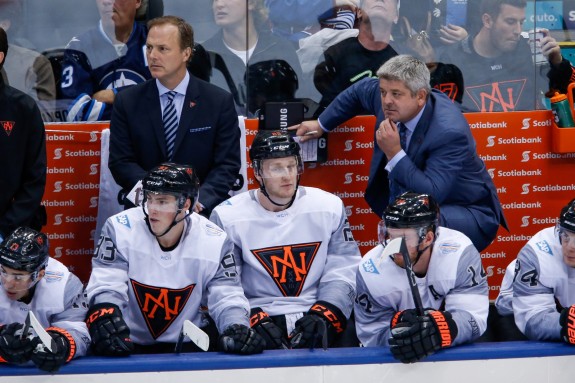
To shed some light on this, all you need to do is look at the TV ratings. The ratings in the United States for the WCOH covered a wide spread. Team USA’s opening game against Team Europe averaged about 360,000 viewers in the US, Team USA’s game against Team Canada averaged about 766,000 viewers, and last but not least, the final between Team Canada and Team Europe averaged just shy of 500,000 viewers. Those numbers were from the ESPN family of networks, which is essentially the go-to channel for anything sports related.
So how do those numbers compare? Well, frankly, not very well.
First I’ll put them into context by comparing them to the NHL’s numbers.
Last season, NBC Sports Network’s Wednesday Night Rivalry games averaged north of 600,000 viewers. This year’s NBC broadcasts are averaging 1.3 million viewers and this year’s NBCSN broadcasts (all, not just Wednesday Night Rivalry) are averaging almost 350,000. On top of that, the Stadium Series game between the Flyers and Penguins almost hit the two million viewer mark.
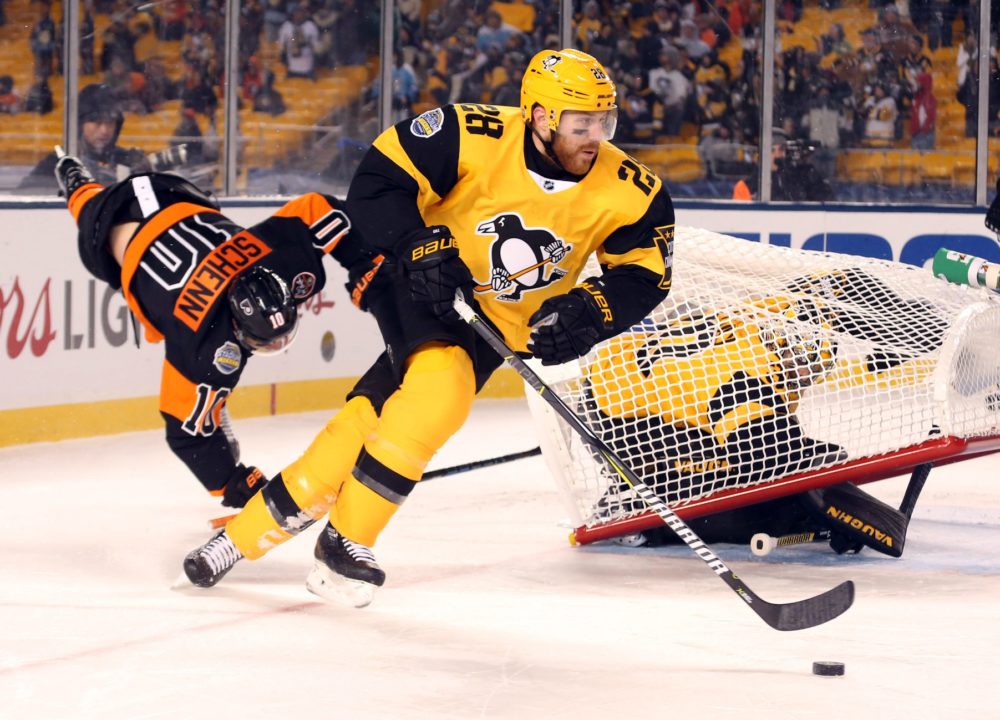
So what audience was captured by the World Cup? The exact same audience that watches the NHL night in and night out. That’s why their ratings were so similar. You cared about the World Cup because you had been craving competitive hockey over that long summer break. The World Cup gave that to you. Sure, the average hockey fan liked it, but that’s all it did. It didn’t reach out to the casual fan, it didn’t bring in new fans, it gave people who already love the game something to watch.
TV Rating Gold
As I’m sure you can imagine, the Olympics garnered much better ratings than any other hockey.
The 1980 gold medal game between the US and Sweden (which came after the “Miracle on Ice” over the Soviets), was watched by 32.8 million people in the United States. The 2010 gold medal game, which was one of the most exciting games I’ve ever watched, drew 27.6 million and peaked at 35 million viewers.
The 2014 games actually posted some more impressive ratings, mainly because of the timeframes. The shootout thriller against Russia was a morning game in North America, that game still managed to average 4.1 million viewers and on top of that, it made Oshie a household name. The semifinal against Canada, which was played during a weekday in the US, averaged 3.9 million viewers with another 2.1 million streaming the game.
The ratings for the WCOH might have been somewhat impressive, but they certainly didn’t engage any non-traditional fans. That is clearly evident by the fact that NBCSN’s regular season
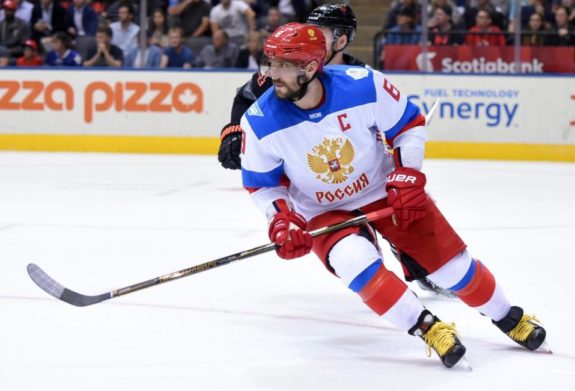
broadcasts were on-par with or better than the WCOH. On top of that, the NHL’s idea of an international tournament came nowhere close to the interest that the Olympics generated.
Why might that be?
Because the last thing on any casual sports fan’s mind in mid-September is hockey.
The MLB season is in the dwindling weeks of the season with teams fighting for division pennants, the NFL season is in full-swing, and college football has taken over people’s lives again. Not to mention, most of the country can still walk outside in shorts and a t-shirt. That doesn’t make anyone want to watch a sport that is played on ice.
Of course, there will be markets like New York, Philadelphia, Pittsburgh, Buffalo and Detroit where hockey will always be generating interest, but that just doesn’t ring true for the rest of the country.
However, it’s a different story when it comes to the Olympics.
The World Cup was cool — no more than that. It wasn’t really an event to get together for. It was an event that might have warranted getting together with friends to have a beer. But rest assured, I wasn’t going to take time out of my day or make special plans to watch the games.
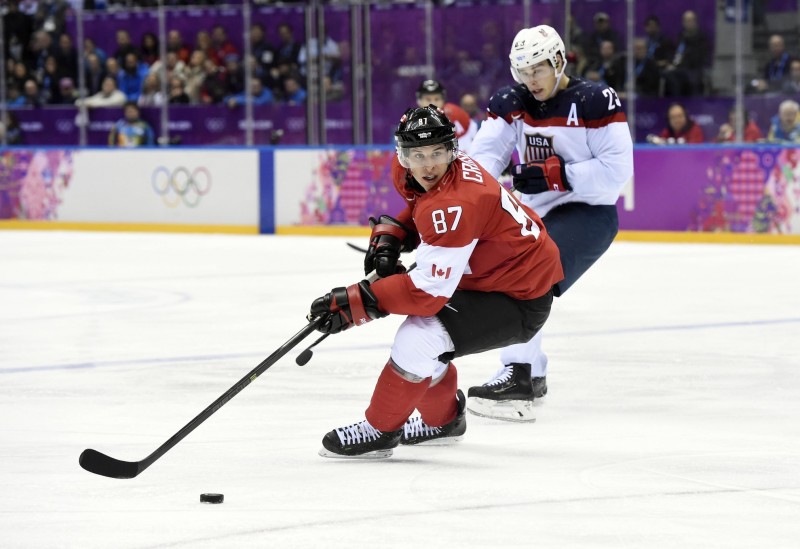
The Olympics are a different story.
When the US played Russia early that morning, everyone had to get together, it was must-watch TV, and it made it that much better that these guys were NHL players. Bars were packed with screaming fans, people were excited and engaged. It was a chance for non-traditional hockey fans to relate to the sport and a chance for the NHL to pick up new fans via their own players. If a young kid saw Oshie being the “hero” for his team, he might want to watch him night in and night out, and what do you know, the NHL just gained a new fan. Take that fan acquisition even further now with the addition of a team in Las Vegas.

For the most part, Las Vegas is going to be new to hockey. The Olympics would present an international stage to showcase some of the best players in the world. If Canada and the US were to meet in a game as thrilling as the one in 2010, can you imagine the effect that might have on a city like Vegas that is new to hockey? Those people would have just witnessed 60 minutes of riveting action, having the NHL players in there makes it that much more competitive, and gives them the opportunity to turn on their TV and look for that type of action again, even once the Olympics are done.
That’s the type of exposure that the NHL could gain by sending their players to the Olympics.
That is the lure the Olympics have that no other international tournament can match. Everyone accepts that these are the best athletes in the world, and they’ve come hungry with an appetite to win a gold medal.
That’s also why, despite some good competition, the United States didn’t fall in love with the World Cup. Sure, it was cool getting to watch a bunch of young guys like Team North America, but it appealed to just hockey fans, not casual fans, and that’s where the NHL is failing to understand what the Olympics do for them.
Missed Opportunity
I’ve heard multiple arguments from the league side regarding stopping the season, costing them money and risking their players being injured, but in the long run, it’s the league that will suffer.
The biggest part of the whole thing and probably the most overlooked, is that the Olympics are going to crush the NHL’s chances of getting any substantial interest over that time period. If there’s an NHL game on national TV against a good Olympic game, I’m certainly going to be tuning into the Olympic game, and I’m sure that’s what nearly any casual fan will be doing as well. To complicate matters even more, NBC holds the rights to the Olympics and the NHL. If the NHL continues their season during the Olympics then what will NBCSN and NBC do? I can’t see them bumping the Olympics for something that won’t even generate a quarter of the ratings.
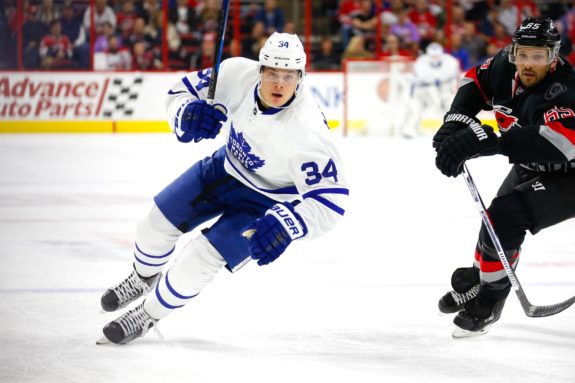
Of course, lost in all of this is also the great hypocrisy of the league itself. If the league doesn’t want to put their players at risk, then why are they allowing them to play in the World Cup? That’s a tournament that proved to be far more physical than the Olympics, and threw players right into the fire nearly cold after an entire offseason.
Most importantly is the missed opportunity to showcase the world’s best young talent. The NHL has some of the most exciting young talent in all of sports. McDavid is leading the league in points in his sophomore season, Auston Matthews will likely hit 40 goals in his rookie season, Patrick Laine burst on to the goal-scoring scene this season and the list could go on and on.
Deciding not to go essentially alienates all of this. That’s especially bad news for Team USA. They would be a such a dynamic team with the young guys the have in the NHL right now. Matthews, Johnny Gaudreau, Seth Jones, Zach Werenski, Dylan Larkin, Shayne Gostisbehere and Matthew Tkachuk could have all been serious game changers for Team USA. That would have been an extremely fun team to watch play.
The league also has to keep something else in mind — what if some players leave altogether?
The hockey world isn’t like it used to be, there are plenty of other competitive leagues out there, most notably the KHL. There’s no rule that says the best talent in the world has to play in the NHL, especially with how the league has been treating players. They have to also think about the repercussions if the players decide to fight back. I mentioned the World Cup as the NHL’s baby. What if the NHLPA deems it too dangerous and they pull out? Then where does the NHL sit on the international stage? Well, it won’t really have any voice.
Then, of course, there are issues with the Collective Bargaining Agreement. The Olympics weren’t addressed in 2013 when the lockout ended, but with the league backing out now, you can almost bet on this being a major issue when 2022 comes around, an issue that might certainly be the bargaining point for the NHLPA. Would that lead to another prolonged lockout? If so, the league really has no ground to stand on.
In the end, it’s entirely plausible that the backlash from players and fans alike will move the NHL to change their mind on the subject. The Olympics always have been, and always will be the top-tier of international competition. The NHL refusing to send their players or put their season on hold won’t change that. People will still gravitate toward Olympic competition while the NHL becomes an afterthought for a two-week span.
The NHL will also continue to miss out on acquiring interest from the casual sports fan. The league has participated in five Olympic games, three of those came after it was nearly destroyed due to a canceled season. They are still recovering to this day, and that makes it nearly impossible to try to say that the Olympics haven’t helped, especially considering the NHL has only been growing since then.
The NHL dropped the ball on this one.